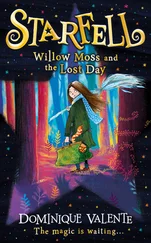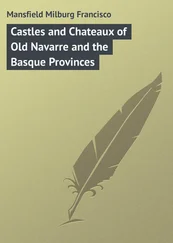Ursula Le Guin - Old Music and the Slave Women
Здесь есть возможность читать онлайн «Ursula Le Guin - Old Music and the Slave Women» весь текст электронной книги совершенно бесплатно (целиком полную версию без сокращений). В некоторых случаях можно слушать аудио, скачать через торрент в формате fb2 и присутствует краткое содержание. Жанр: Фантастика и фэнтези, на английском языке. Описание произведения, (предисловие) а так же отзывы посетителей доступны на портале библиотеки ЛибКат.
- Название:Old Music and the Slave Women
- Автор:
- Жанр:
- Год:неизвестен
- ISBN:нет данных
- Рейтинг книги:4 / 5. Голосов: 1
-
Избранное:Добавить в избранное
- Отзывы:
-
Ваша оценка:
- 80
- 1
- 2
- 3
- 4
- 5
Old Music and the Slave Women: краткое содержание, описание и аннотация
Предлагаем к чтению аннотацию, описание, краткое содержание или предисловие (зависит от того, что написал сам автор книги «Old Music and the Slave Women»). Если вы не нашли необходимую информацию о книге — напишите в комментариях, мы постараемся отыскать её.
and after that imported to fb2 by soshial (21.05.2008) http://torrents.ru/forum/viewtopic.php?t=463754
Old Music and the Slave Women — читать онлайн бесплатно полную книгу (весь текст) целиком
Ниже представлен текст книги, разбитый по страницам. Система сохранения места последней прочитанной страницы, позволяет с удобством читать онлайн бесплатно книгу «Old Music and the Slave Women», без необходимости каждый раз заново искать на чём Вы остановились. Поставьте закладку, и сможете в любой момент перейти на страницу, на которой закончили чтение.
Интервал:
Закладка:
"I am not authorised to speak for the Ekumen. The Ambassador—"
"Will not. Cannot. Is not free to. You are. You are a free agent, Mr. Old Music. Your position on Werel is unique. Both sides respect you. Trust you. And your voice carries infinitely more weight among the whites than his. He came only a year before the insurrection. You are, I may say, one of us."
"I am not one of you. I neither own nor am owned. You must redefine yourselves to include me."
Rayaye, for a moment, had nothing to say. He was taken aback, and would be angry. Fool, Esdan said to himself, old fool, to take the moral high ground! But he did not know what ground to stand on.
It was true that his word would carry more weight than the Ambassador's. Nothing else Rayaye had said made sense. If President Oyo wanted the Ekumen's blessing on his use of this weapon and seriously thought Esdan would give it, why was he working through Rayaye, and keeping Esdan hidden at Yaramera? Was Rayaye working with Oyo, or was he working for a faction that favored using the bibo, while Oyo still refused?
Most likely the whole thing was a bluff. There was no weapon. Esdan's pleading was to lend credibility to it, while leaving Oyo out of the loop if the bluff failed.
The biobomb, the bibo, had been a curse on Voe Deo for decades, centuries. In panic fear of alien invasion after the Ekumen first contacted them almost four hundred years ago, the Werelians had put all their resources into developing space flight and weaponry. The scientists who invented this particular device repudiated it, informing their government that it could not be contained; it would destroy all human and animal life over an enormous area and cause profound and permanent genetic damage worldwide as it spread throughout the water and the atmosphere. The government never used the weapon but was never willing to destroy it, and its existence had kept Werel from membership in the Ekumen as long as the Embargo was in force. Voe Deo insisted it was their guarantee against extraterrestrial invasion and perhaps believed it would prevent revolution. Yet they had not used it when their slave-planet Yeowe rebelled. Then, after the Ekumen no longer observed the Embargo, they announced that they had destroyed the stockpiles. Werel joined the Ekumen. Voe Deo invited inspection of the weapon sites. The Ambassador politely declined, citing the Ekumenical policy of trust. Now the bibo existed again. In fact? In Rayaye's mind? Was he desperate? A hoax, an attempt to use the Ekumen to back a bogey threat to scare off an invasion: the likeliest scenario, yet it was not quite convincing.
"This war must end," Rayaye said.
"I agree."
"We will never surrender. You must understand that." Rayaye had dropped his blandishing, reasonable tone. "We will restore the holy order of the world," he said, and now he was fully credible. His eyes, the dark Werelian eyes that had no whites, were fathomless in the dim light. He drank down his wine. "You think we fight for our property. To keep what we own. But I tell you, we fight to defend our Lady. In that fight is no surrender. And no compromise."
"Your Lady is merciful."
"The Law is her mercy."
Esdan was silent.
"I must go again tomorrow to Bellen," Rayaye said after a while, resuming his masterful, easy tone. "Our plans for moving on the southern front must be fully coordinated. When I come back, I'll need to know if you will give us the help I've asked you for. Our response will depend largely on that. On your voice. It is known that you're here in the East Provinces—known to the insurgents, I mean, as well as our people—though your exact location is of course kept hidden for your own safety. It is known that you may be preparing a statement of a change in the Ekumen's attitude toward the conduct of the civil war. A change that could save millions of lives and bring a just peace to our land. I hope you'll employ your time here in doing so."
He is a factionalist, Esdan thought. He's not going to Bellen, or if he is, that's not where Oyo's government is. This is some scheme of his own. Crackbrained. It won't work. He doesn't have the bibo. But he has a gun. And he'll shoot me.
"Thank you for a pleasant dinner, Minister," he said.
Next morning he heard the flyer leave at dawn. He limped out into the morning sunshine after breakfast. One of his veot guards watched him from a window and then turned away. In a sheltered nook just under the balustrade of the south terrace, near a planting of great bushes with big, blowsy, sweet-smelling white flowers, he saw Kamsa and her baby and Heo. He made his way to them, dot-and-go-one. The distances at Yaramera, even inside the house, were daunting to a lamed man. When he finally got there, he said, "I am lonely. May I sit with you?"
The women were afoot, of course, reverencing, though Kamsa's reverence had become pretty sketchy. He sat on a curved bench splotched all over with fallen flowers. They sat back down on the flagstone path with the baby. They had unwrapped the little body to the mild sunshine. It was a very thin baby, Esdan thought. The joints in the bluish-dark arms and legs were like the joints in flower stems, translucent knobs. The baby was moving more than he had ever seen it move, stretching its arms and turning its head as if enjoying the feel of the air. The head was large for the neck, again like a flower, too large on too thin a stalk. Kamsa dangled one of the real flowers over the baby. His dark eyes gazed up at it. His eyelids and eyebrows were exquisitely delicate. The sunlight shone through his fingers. He smiled. Esdan caught his breath. The baby's smile at the flower was the beauty of the flower, the beauty of the world.
"What is his name?"
"Rekam."
Grandson of Kamye. Kamye the Lord and slave, huntsman and husbandman, warrior and peacemaker.
"A beautiful name. How old is he?"
In the language they spoke that was, "How long has he lived?" Kamsa's answer was strange. "As long as his life," she said, or so he understood her whisper and her dialect. Maybe it was bad manners or bad luck to ask a child's age.
He sat back on the bench. "I feel very old," he said. "I haven't seen a baby for a hundred years."
Heo sat hunched over, her back to him; he felt that she wanted to cover her ears. She was terrified of him, the alien. Life had not left much to Heo but fear, he guessed. Was she twenty, twenty-five? She looked forty. Maybe she was seventeen. Usewomen, ill-used, aged fast. Kamsa he guessed to be not much over twenty. She was thin and plain, but there was bloom and juice in her as there was not in Heo.
"Master did have children?" Kamsa asked, lifting up her baby to her breast with a certain discreet pride, shyly flaunting.
"No."
" A yera yera ," she murmured, another slave word he had often heard in the urban compounds: 0 pity, pity.
"How you get to the center of things, Kamsa," he said. She glanced his way and smiled. Her teeth were bad, but it was a good smile. He thought the baby was not sucking. It lay peacefully in the crook of her arm. Heo remained tense and jumped whenever he spoke, so he said no more. He looked away from them, past the bushes, out over the wonderful view that arranged itself, whenever you walked or sat, into a perfect balance: the levels of flagstone, of dun grass and blue water, the curves of the avenues, the masses and lines of shrubbery, the great old tree, the misty river and its green far bank. Presently the women began talking softly again. He did not listen to what they said. He was aware of their voices, aware of sunlight, aware of peace.
Old Gana came stumping across the upper terrace towards them, bobbed to him, said to Kamsa and Heo, "Choyo does want you. Leave me that baby." Kamsa set the baby down on the warm stone again. She and Heo sprang up and went off, thin, light women moving with easy haste. The old woman settled down piece by piece and with groans and grimaces onto the path beside Rekam. She immediately covered him up with a fold of his swaddling cloth, frowning and muttering at the foolishness of his mother. Esdan watched her careful movements, her gentleness when she picked the child up, supporting that heavy head and tiny limbs, her tenderness cradling him, rocking her body to rock him.
Читать дальшеИнтервал:
Закладка:
Похожие книги на «Old Music and the Slave Women»
Представляем Вашему вниманию похожие книги на «Old Music and the Slave Women» списком для выбора. Мы отобрали схожую по названию и смыслу литературу в надежде предоставить читателям больше вариантов отыскать новые, интересные, ещё непрочитанные произведения.
Обсуждение, отзывы о книге «Old Music and the Slave Women» и просто собственные мнения читателей. Оставьте ваши комментарии, напишите, что Вы думаете о произведении, его смысле или главных героях. Укажите что конкретно понравилось, а что нет, и почему Вы так считаете.












